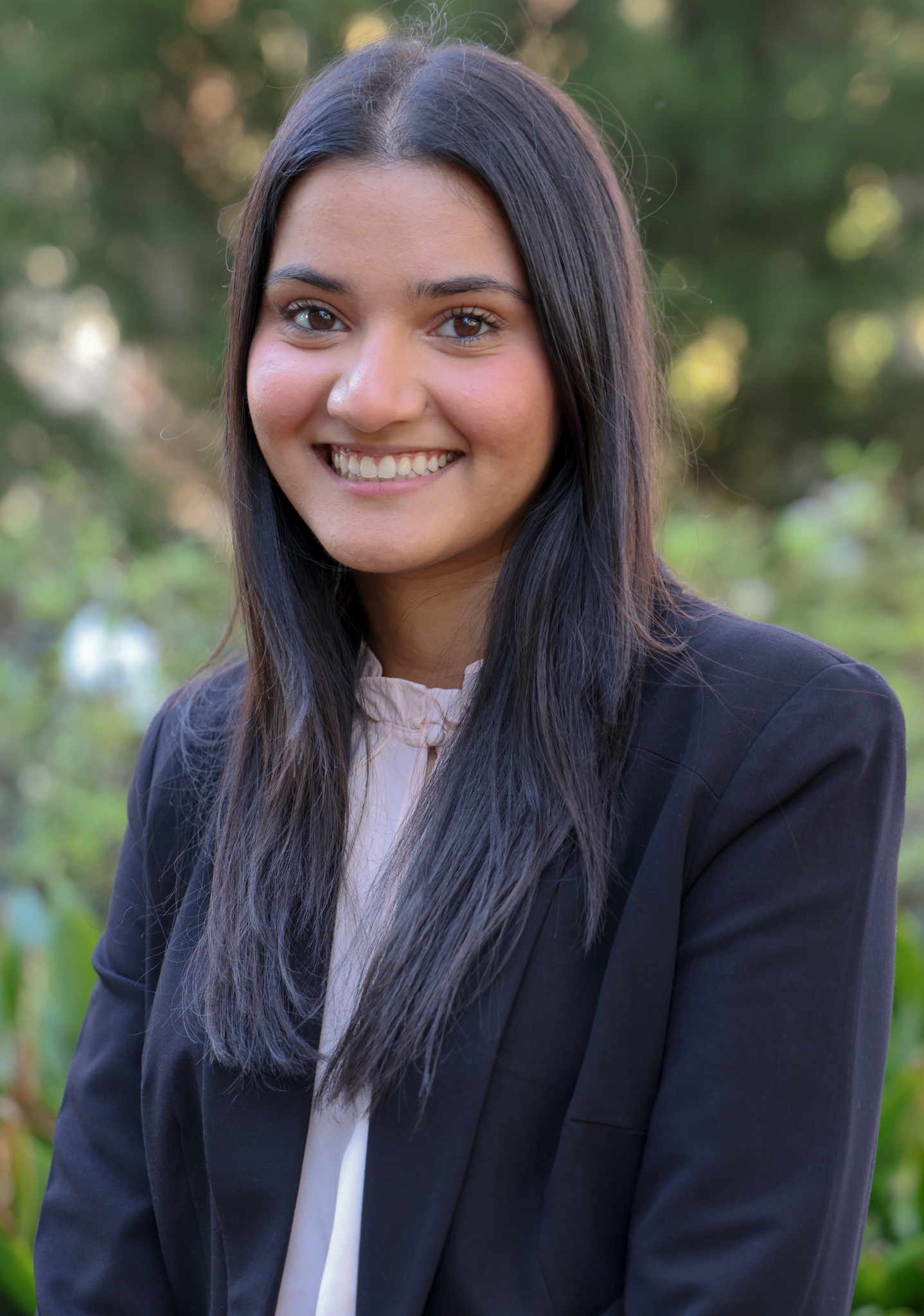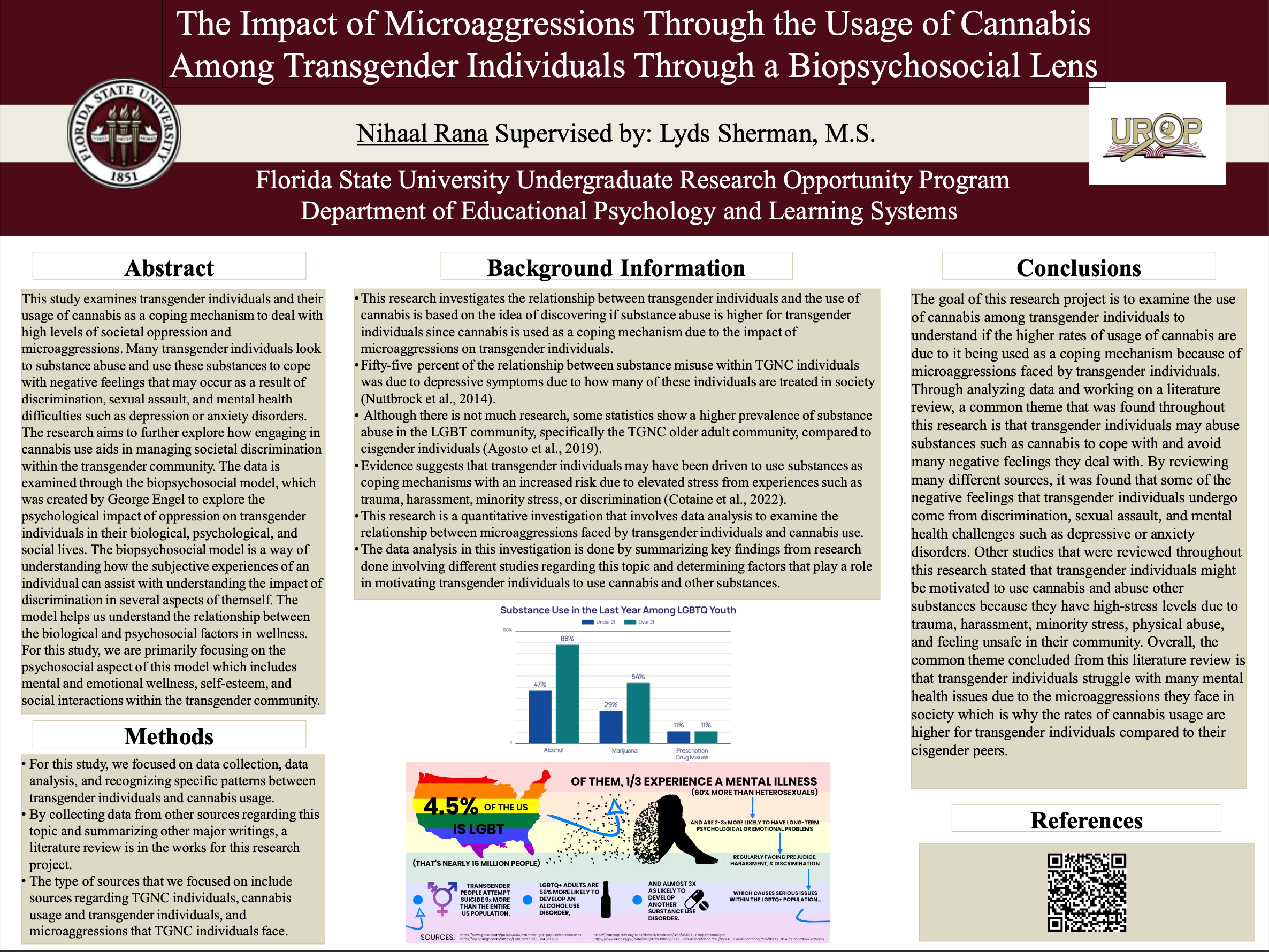Research Symposium
24th annual Undergraduate Research Symposium, April 3, 2024
Nihaal Rana Poster Session 3: 1:30 pm - 2:30 pm /153

BIO
My name is Nihaal Rana, and I am a second-year Clinical Professions major from Pensacola, Florida. At FSU, I am involved in the Phi Delta Epsilon International Medical Fraternity as a member, the Undergraduate Research Opportunities Program as a research assistant, and I have been working as a Patient Care Technician. I hope to attend medical school in the future and become a dermatologist. I have enjoyed doing research and I am grateful for the opportunity to conduct research through UROP.
The Impact of Microaggressions Through the Usage of Cannabis Among Transgender Individuals Through a Biopsychosocial Lens
Authors: Nihaal Rana, Lyds ShermanStudent Major: Clinical Professions
Mentor: Lyds Sherman
Mentor's Department: Department of Educational Psychology and Learning Systems Mentor's College: College of Education Counseling and School Psychology, Social Sciences and Public Policy Co-Presenters:
Abstract
This study examines transgender individuals and their usage of cannabis as a coping mechanism to deal with high levels of societal oppression and microaggressions. Many transgender individuals look to substance abuse and use these substances to cope with negative feelings that may occur as a result of discrimination, sexual assault, and mental health difficulties such as depression or anxiety disorders. The research aims to further explore how engaging in cannabis use aids in managing societal discrimination within the transgender community. The data is examined through the biopsychosocial model, which was created by George Engel to explore the psychological impact of oppression on transgender individuals in their biological, psychological, and social lives. The biopsychosocial model is a way of understanding how the subjective experiences of an individual can assist with understanding the impact of discrimination in several aspects of themself. The model helps us understand the relationship between the biological and psychosocial factors in wellness. For this study, we are primarily focusing on the psychosocial aspect of this model which includes mental and emotional wellness, self-esteem, and social interactions within the transgender community.
Keywords: transgender, microaggressions, substance abuse

